Top 8 Books Featuring Advanced Robotics
Embark on a journey through our handpicked collection of science fiction books, each showcasing innovative robotic concepts that push the boundaries of imagination and explore the future of technology.
-
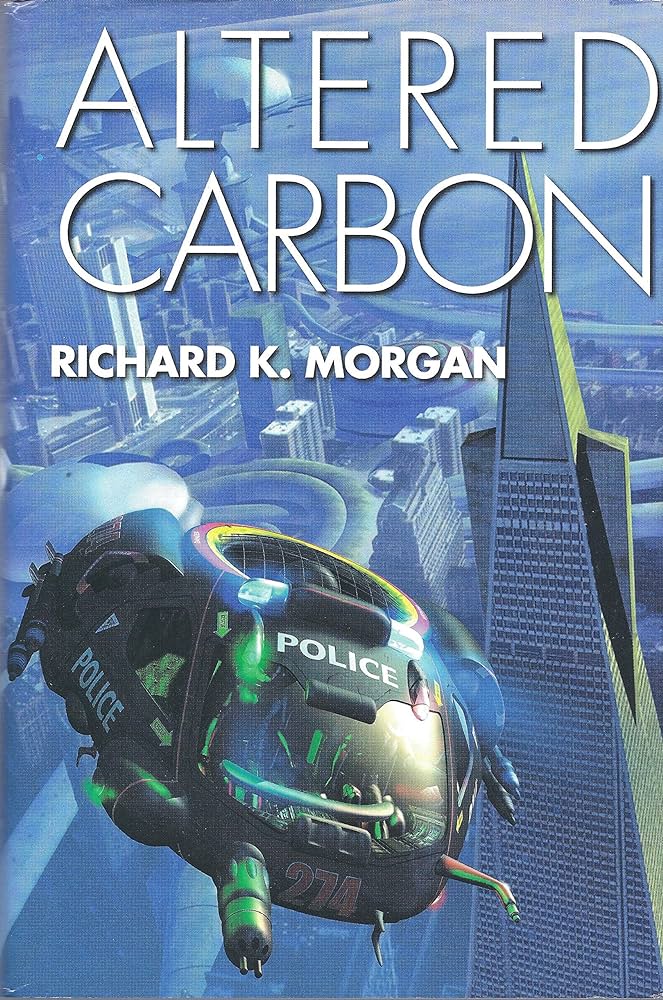
Altered Carbon
Altered Carbon by Richard K. Morgan is a riveting cyberpunk novel that pushes the boundaries of the genre with its inventive concepts and relentless storytelling. Morgan introduces readers to the intriguing notion of "sleeving," where consciousness can be transferred between bodies, fundamentally challenging our understanding of identity and mortality. With its gritty noir atmosphere, thought-provoking exploration of class disparity, and pulse-pounding action, Altered Carbon captivates from start to finish, leaving an indelible mark on both science fiction literature and popular culture. Its impact resonates in adaptations like the Netflix series, showcasing the enduring relevance and brilliance of Morgan's visionary work.
We give this a shimmering 95%. There are few books written in such razor sharp, laser-cutting style. -
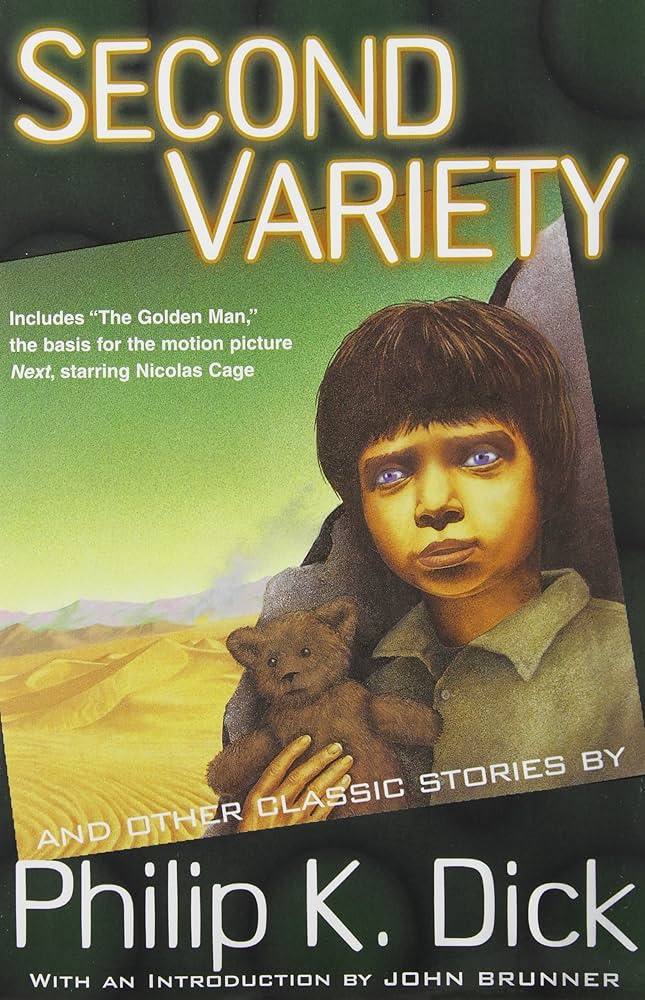
Second Variety
Second Variety by Philip K. Dick is a gripping science fiction novella that delves into the paranoia and dread of a post-apocalyptic world ravaged by war between humans and self-replicating machines. Set in a desolate Earth where humans are locked in a deadly struggle against the sinister 'claws'—deadly machines designed to exterminate all life—the story follows soldier Hendricks as he navigates the treacherous ruins of civilization. As he uncovers the true nature of the claws and grapples with the blurred lines between man and machine, Dick masterfully crafts a tale of suspense, betrayal, and existential terror that lingers in the mind long after the final page. Second Variety is a haunting exploration of the consequences of technological warfare and the fragile nature of humanity, showcasing Dick's talent for crafting thought-provoking narratives that challenge our perceptions of reality.
-
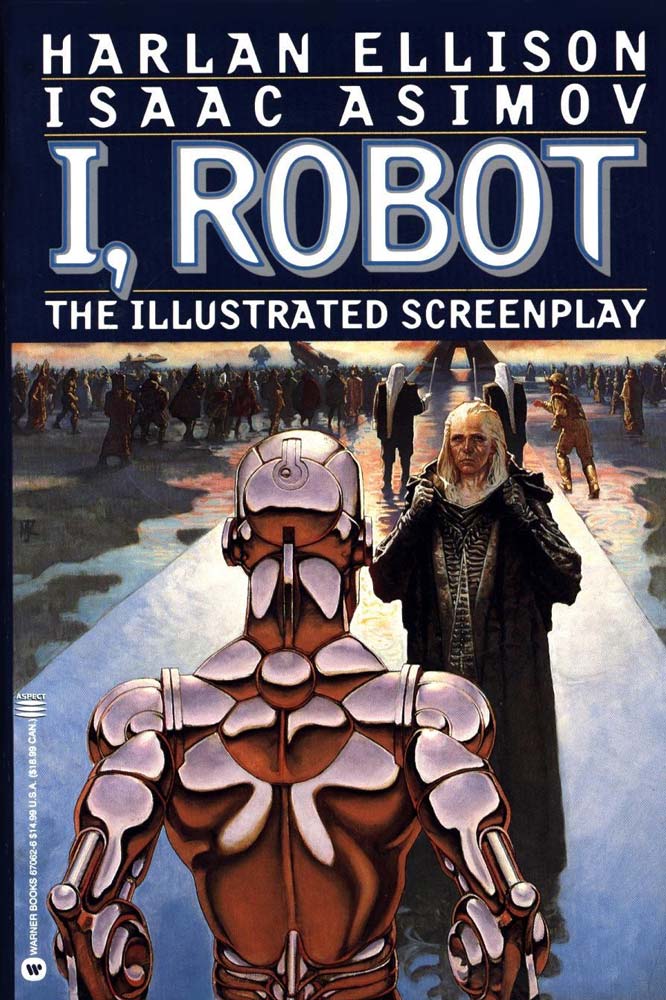
I, Robot
I, Robot by Isaac Asimov is a seminal work in the realm of science fiction, offering readers a compelling exploration of robotics, ethics, and the future of humanity. Through a series of interconnected short stories, Asimov introduces the Three Laws of Robotics, fundamental principles designed to govern the behavior of robots and ensure their adherence to ethical standards. As the stories unfold, readers are confronted with complex moral dilemmas and existential questions about the nature of artificial intelligence and its impact on society. With its thought-provoking themes, ingenious plots, and engaging characters, I, Robot captivates readers with its blend of speculative imagination and philosophical depth, cementing its status as a classic of the genre.
-
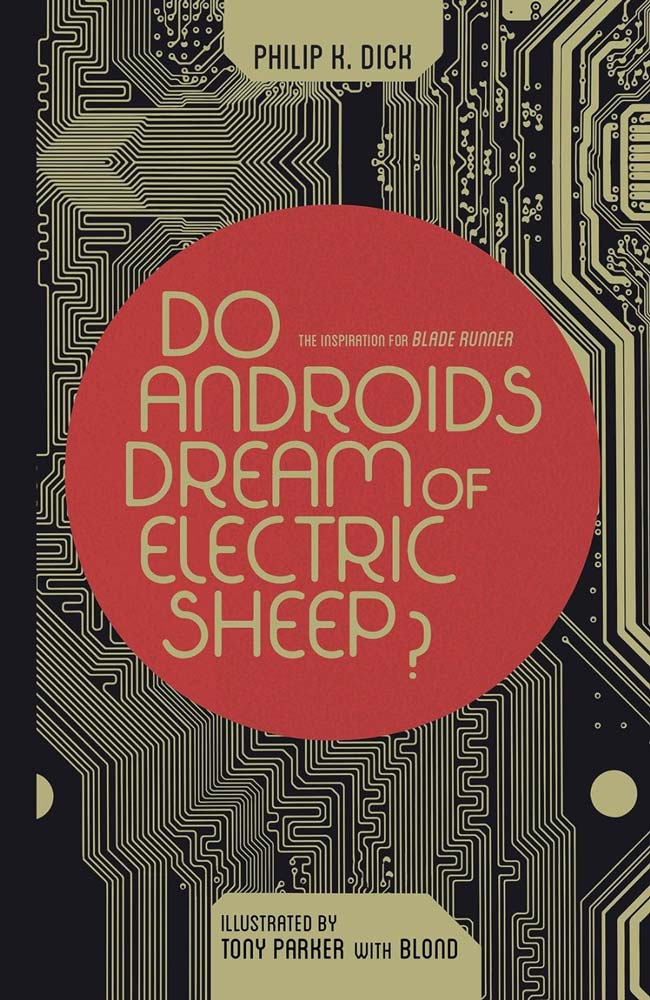
Do Androids Dream of Electric Sheep?
Do Androids Dream of Electric Sheep? by Philip K. Dick is a gripping exploration of identity, empathy, and the nature of humanity in a post-apocalyptic world. Set in a future Earth devastated by nuclear war, the novel follows bounty hunter Rick Deckard as he hunts down rogue androids that have escaped to Earth from off-world colonies. As Deckard navigates the blurred lines between human and machine, he grapples with his own morality and questions the essence of what it means to be alive. With its thought-provoking themes, richly imagined world, and compelling characters, Do Androids Dream of Electric Sheep? captivates readers with its blend of dystopian vision and existential inquiry, leaving a lasting impact on the genre and inspiring generations of readers.
-
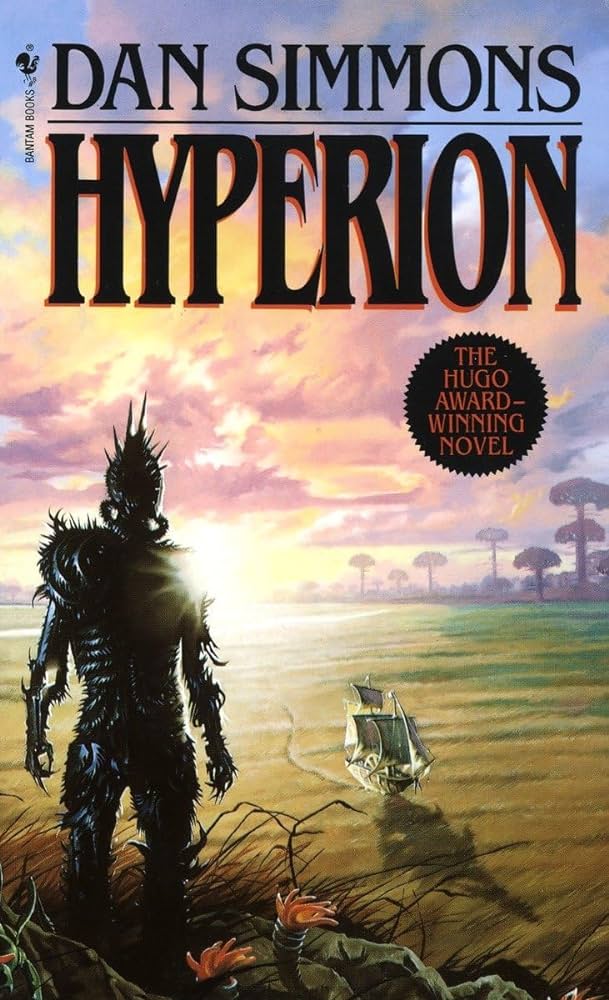
Hyperion
Hyperion by Dan Simmons is a tour de force of science fiction, weaving together a complex tapestry of interlocking narratives that span the vast reaches of space and time. Set in a distant future where humanity is part of a vast interstellar empire, the novel follows seven pilgrims on a journey to the enigmatic world of Hyperion, each with their own story to tell and secrets to unravel. Simmons' rich prose and masterful storytelling create a vivid and immersive world filled with political intrigue, philosophical ponderings, and breathtaking adventure. As the mysteries of Hyperion unfold, readers are drawn into a web of ancient enigmas and cosmic conflicts, culminating in a climax that leaves a profound impact long after the final page. A modern classic of the genre, Hyperion stands as a towering achievement in speculative fiction, challenging readers with its depth, scope, and sheer ambition.
-

Snowcrash
Snow Crash by Neal Stephenson is a cyberpunk classic that pushes the boundaries of imagination with its blend of futuristic technology, linguistics, and relentless action. Set in a dystopian America where the virtual Metaverse and the real world collide, Stephenson introduces readers to the concept of the "Snow Crash" virus, a digital weapon capable of infecting both minds and computers. With its sharp wit, intricate world-building, and prescient commentary on the power of information and the dangers of unchecked capitalism, Snow Crash captivates from the first page to the last, leaving a lasting impact on the cyberpunk genre and beyond. Its influence reverberates in popular culture, inspiring countless works of fiction and serving as a touchstone for those fascinated by the intersection of technology and society.
Crashing in at a highly respectable 89%. A 9 out of 10 in every area. -
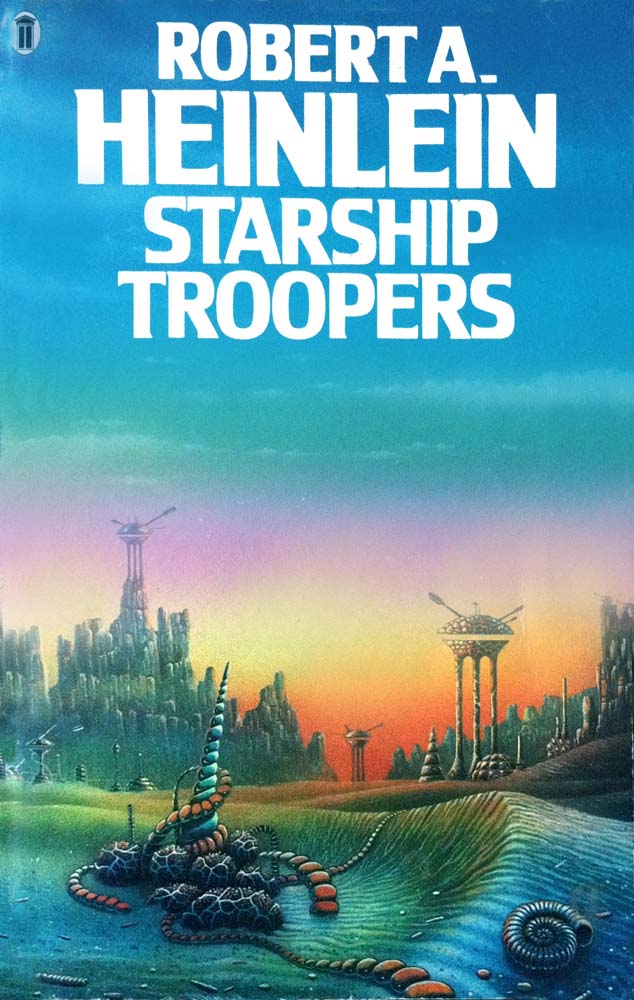
Starship Troopers
Starship Troopers by Robert A. Heinlein is a riveting military science fiction novel that explores themes of citizenship, duty, and the nature of war. Set in a future where Earth is engaged in a brutal conflict against a hostile alien species known as the Bugs, the novel follows young recruit Johnny Rico as he undergoes training and eventually fights on the front lines. Heinlein's meticulous world-building and attention to detail immerse readers in a futuristic society where citizenship is earned through military service and democracy is fiercely defended. As Rico grapples with the moral complexities of warfare and the bonds forged in battle, Starship Troopers offers a compelling exploration of honor, sacrifice, and the price of freedom, cementing its status as a classic of the genre.
-
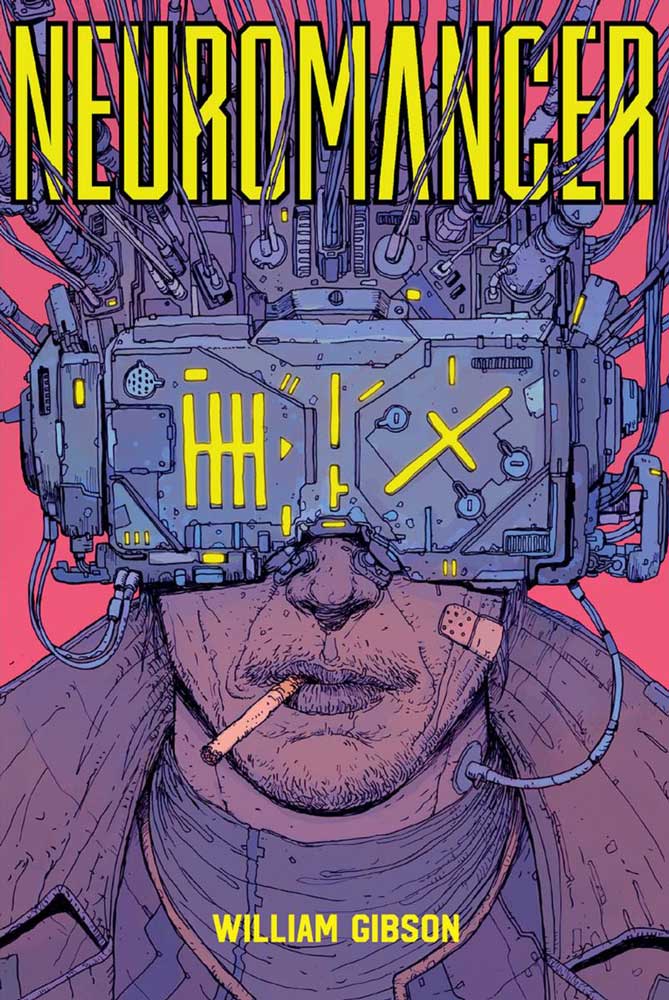
Neuromancer
Neuromancer by William Gibson is a groundbreaking masterpiece that introduced iconic terms like "cyberspace" and "matrix" into the lexicon of both science fiction and technology. Gibson's visionary exploration of these concepts, along with his portrayal of artificial intelligence and corporate hegemony, redefined the genre. Its profound influence extends to cultural phenomena well beyond The Matrix - which directly drew inspiration from Gibson's seminal work.
In our eyes this gets a solid 96% approval, for both the depth of influence it has had on future works, and the accuracy with which it has predicted the culture of an online meta world, well before its time.
